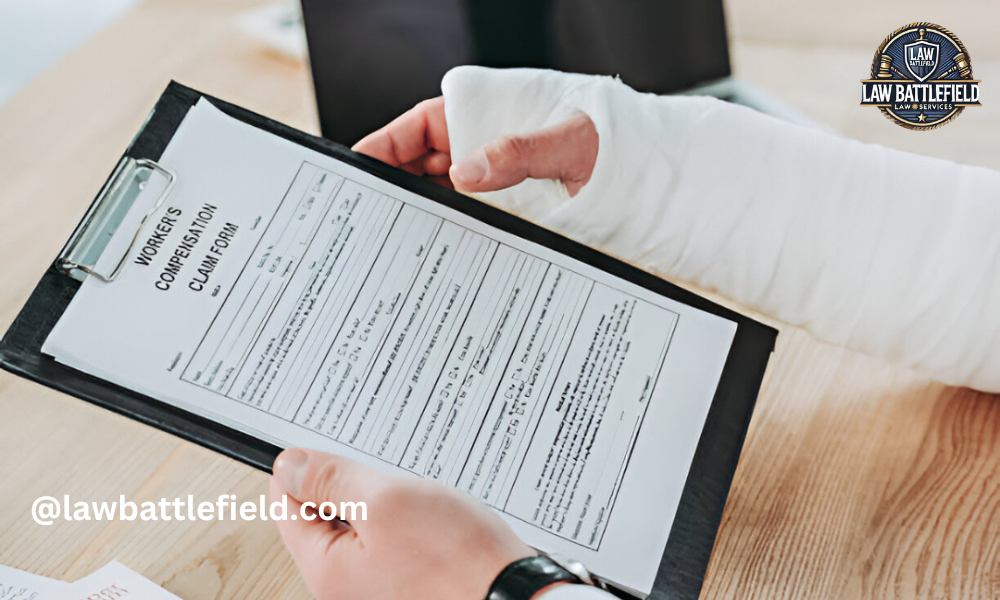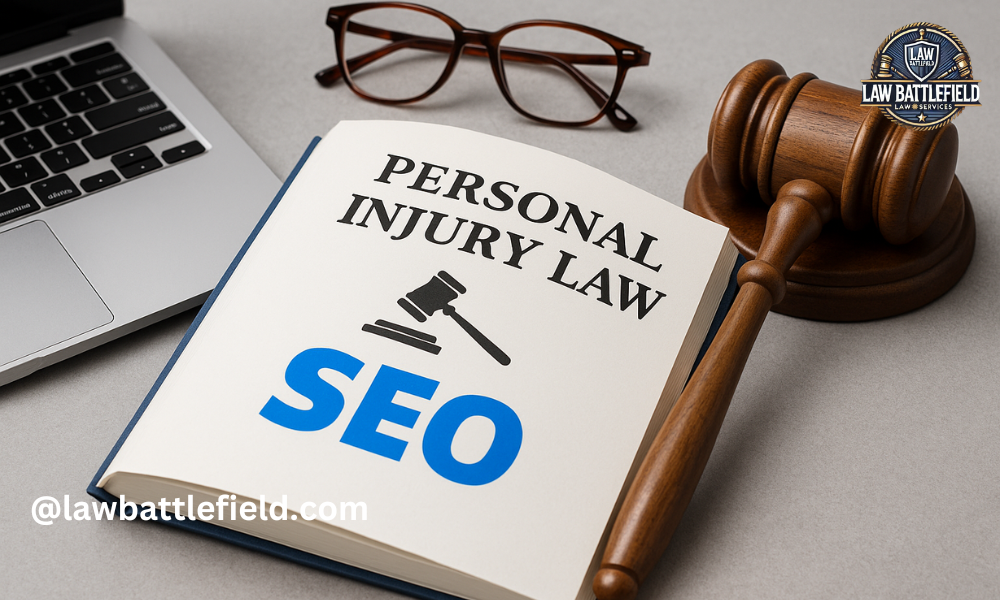Introduction To NH Personal Injury Law
Personal injury law in New Hampshire is all about helping people who’ve been hurt due to someone else’s actions. It covers various types of injuries, whether from a car accident, a fall, or a medical issue. If someone gets hurt because of another person’s carelessness, they may be able to get compensation for things like medical bills, lost wages, and pain.
Knowing about personal injury law in New Hampshire is important. Each state has unique rules, and New Hampshire is no exception. The state’s laws set guidelines on who’s responsible, what type of compensation you might receive, and how long you have to file a case. Understanding these basics can make a big difference if you or someone you know needs to make a claim.
Common Types Of Personal Injury Cases In New Hampshire
In New Hampshire, personal injury cases arise when someone is harmed due to another’s actions or negligence. Here are some common types:
- Motor Vehicle Accidents: These include collisions involving cars, motorcycles, trucks, and pedestrians. Causes often involve distracted driving, speeding, or impaired driving.
- Slip and Fall Incidents: Occur when someone slips, trips, or falls due to hazardous conditions like wet floors, uneven surfaces, or poor lighting on someone else’s property.
- Medical Malpractice: Involves injuries resulting from healthcare professionals’ negligence, such as misdiagnosis, surgical errors, or improper treatment.
- Defective Products: Injuries caused by faulty products, including malfunctioning appliances, unsafe toys, or contaminated food items.
- Dog Bites and Animal Attacks: Injuries from animal attacks, particularly dog bites, where the owner may be held responsible for their pet’s actions.
Understanding these common cases can help individuals recognize when they might have a valid personal injury claim in New Hampshire.
Establishing Liability In Personal Injury Cases
To succeed in a personal injury claim in New Hampshire, it’s essential to establish who is legally responsible, or liable, for the injury. This involves understanding key legal concepts:
- Understanding Negligence and Duty of Care: Negligence occurs when someone fails to act with the level of care that a reasonable person would in similar circumstances, leading to harm. The “duty of care” refers to the legal obligation to avoid causing harm. For instance, drivers have a duty to follow traffic laws to prevent accidents. If this duty is breached and causes injury, the responsible party may be liable.
- Comparative Fault Rules in New Hampshire: New Hampshire follows a “modified comparative fault” system. This means that if you’re partially at fault for your injury, your compensation may be reduced by your percentage of fault. However, if you’re found to be more than 50% at fault, you may not be able to recover any damages.
- Role of Evidence in Proving Liability: Gathering strong evidence is crucial to prove liability. This can include photographs of the accident scene, medical records, witness statements, and expert testimonies. Solid evidence helps demonstrate how the injury occurred and who is responsible.
Understanding these elements is vital for building a strong personal injury case in New Hampshire.
Statute Of Limitations For Personal Injury Claims
In New Hampshire, like in other states, there are strict time limits for filing a personal injury lawsuit, known as the “statute of limitations.” This deadline determines how long you have to take legal action after an injury:
- Time Limits for Filing Personal Injury Lawsuits in New Hampshire: Typically, you have three years from the date of the injury to file a personal injury lawsuit. If you miss this deadline, your case may be dismissed, and you may lose the chance to recover any damages.
- Exceptions and Special Circumstances: In some cases, there may be exceptions that extend this time limit. For example, if the injury was not immediately discovered or involves a minor, the time frame could be adjusted. Certain cases may also have shorter limits, especially those involving government entities. Knowing these details helps ensure timely action in filing a claim.
Damages Recoverable In Personal Injury Cases
When someone files a personal injury claim, they may be able to recover several types of damages to help cover the costs and impacts of their injury:
- Economic Damages: These cover actual financial losses related to the injury. They can include medical expenses, lost wages, and property damage. Economic damages are straightforward to calculate as they involve specific bills, receipts, and financial records.
- Non-Economic Damages: These cover the emotional and physical toll of an injury. Non-economic damages can include compensation for pain and suffering, emotional distress, and loss of enjoyment of life. Although harder to quantify, these damages acknowledge the personal impact of the injury.
- Punitive Damages: In cases where the defendant’s behavior was especially harmful or reckless, the court may award punitive damages. These are intended to punish the wrongdoer rather than directly compensate the victim. However, punitive damages are not common and have limitations in New Hampshire.
These damages provide financial relief and help injured individuals regain stability after an accident or injury in New Hampshire.
The Personal Injury Claim Process In New Hampshire
Navigating the personal injury claim process can feel overwhelming, but understanding each step can help ease the journey. Here’s an overview of how personal injury claims generally proceed in New Hampshire:
- Steps to Take Immediately After an Injury: After any injury, taking certain steps early on can help strengthen a claim. First, seek medical attention right away, even if the injury seems minor. Document the scene by taking photos, gathering contact information from witnesses, and filing a police report if necessary. These steps provide valuable evidence and help establish the extent of the injury.
- Filing a Claim: Procedures and Documentation: The process begins with filing a personal injury claim, which requires specific documentation. This includes medical records, police reports, and any proof of expenses related to the injury. These documents support the claim and help show the impact of the injury on the injured party’s life.
- Settlement Negotiations vs. Going to Trial: Most personal injury claims are resolved through settlement negotiations. In a settlement, both parties agree on a compensation amount without going to court, which can save time and legal costs. However, if a fair agreement cannot be reached, the case may go to trial. At trial, a judge or jury determines the outcome and compensation based on the presented evidence.
Understanding each stage of this process can make it easier for individuals to approach a personal injury claim in New Hampshire with confidence.
Role Of Insurance In Personal Injury Cases
Insurance plays a critical role in personal injury cases in New Hampshire, as it often determines how much compensation an injured person may receive. Here’s a look at key points related to insurance in these cases:
- Understanding New Hampshire’s Insurance Requirements: New Hampshire is unique because it does not require all drivers to carry auto insurance. However, those who choose not to carry insurance must demonstrate financial responsibility to cover potential damages. For those who do have insurance, minimum coverage requirements include bodily injury liability and property damage. This ensures some level of protection if an accident occurs.
- Dealing with Insurance Companies: Tips and Pitfalls: Working with insurance companies can be tricky. Adjusters may seem helpful, but their job is to minimize the payout to save money for the company. It’s important to avoid giving detailed statements, signing documents, or accepting a settlement too quickly. Consulting an attorney before communicating with an insurance company can help protect one’s rights and ensure fair compensation.
- Uninsured and Underinsured Motorist Coverage Considerations: Because New Hampshire doesn’t mandate auto insurance, there’s a risk of encountering uninsured or underinsured drivers. Adding uninsured/underinsured motorist coverage to a policy can provide added protection in these situations. This coverage helps pay for medical bills, lost wages, and other damages if the at-fault driver lacks adequate insurance.
Understanding the insurance landscape in New Hampshire can empower injured individuals to make informed decisions and navigate claims more effectively.
Working With A New Hampshire Personal Injury Attorney
Hiring a personal injury attorney in New Hampshire can significantly improve the chances of a successful claim. Here’s what to know about working with an attorney:
- Benefits of Legal Representation: A personal injury attorney brings expertise to the claim, helping navigate complex legal processes, gather essential evidence, and negotiate with insurance companies. They handle all the legal aspects so clients can focus on recovery. An experienced attorney can also assess the claim’s true value, ensuring fair compensation for medical bills, lost wages, and other damages.
- How to Choose the Right Attorney: Choosing an attorney who specializes in personal injury law and has experience with cases similar to yours is crucial. Look for attorneys with positive client reviews, a strong track record, and familiarity with New Hampshire’s unique laws. Most attorneys offer free initial consultations, allowing potential clients to discuss their case and determine if it’s the right fit.
- Contingency Fee Arrangements and Legal Costs: Many personal injury attorneys work on a contingency fee basis, meaning they only get paid if the client wins the case. This arrangement reduces upfront costs for clients and makes legal representation more accessible. The attorney’s fee is typically a percentage of the final settlement, so there are no out-of-pocket costs unless compensation is recovered.
Having the right attorney can make a big difference in personal injury cases, ensuring clients get the support and representation they need for a successful outcome.
Special Considerations In New Hampshire Personal Injury Law
New Hampshire’s personal injury laws have unique aspects that can impact how cases are handled and resolved. Here are some specific considerations:
- Unique State Laws Affecting Personal Injury Cases: New Hampshire has distinct laws that can influence personal injury cases. For example, the state follows a “modified comparative fault” rule, which means an injured person can only recover damages if they are less than 51% at fault for the accident. This rule impacts cases where both parties share some responsibility for the injury. Additionally, New Hampshire’s lack of a mandatory auto insurance requirement is unique, creating challenges when accidents involve uninsured drivers.
- Impact of Local Regulations and Ordinances: Local ordinances and regulations can also affect personal injury cases in New Hampshire. For instance, specific rules might apply to premises liability claims, such as safety standards for businesses and public spaces. Building codes, local traffic laws, and animal control ordinances can also influence how cases are evaluated. Understanding these local nuances is essential for anyone pursuing a personal injury claim in New Hampshire.
These special considerations highlight the importance of understanding the local legal landscape and seeking legal guidance to ensure the best possible outcome.
Recent Developments And Case Studies
Understanding recent developments and case studies in New Hampshire personal injury law can provide valuable insights:
- Notable Personal Injury Cases in New Hampshire: Reviewing landmark personal injury cases helps illustrate how state laws are applied in real-life scenarios. These cases show how courts handle liability, compensation, and unique legal issues. They also highlight the importance of evidence, witness testimony, and expert analysis in winning claims.
- Changes in Legislation and Their Implications: New laws or updates to existing ones can impact personal injury cases significantly. For instance, changes to comparative fault rules or insurance requirements can affect how much compensation is available and who can file a claim. Staying informed about recent legislative changes ensures that those affected by injury have up-to-date information on their rights.
Conclusion
In summary, understanding New Hampshire personal injury law is essential for anyone dealing with an injury caused by another’s actions. Key takeaways include knowing the types of personal injury cases, understanding liability, meeting filing deadlines, and the importance of evidence. It’s also crucial to consider how state-specific rules and insurance requirements affect cases. Working with an experienced attorney can provide essential guidance and maximize the chances of a favorable outcome.
For anyone facing an injury in New Hampshire, acting quickly and making informed decisions is the best way to protect one’s rights and pursue fair compensation.
Frequently Asked Questions (FAQs)
What Qualifies As A Personal Injury Case In New Hampshire?
Personal injury cases arise when someone is harmed due to another person’s negligence or wrongful actions. Common cases include car accidents, slips and falls, medical malpractice, and animal attacks.
How Long Do I Have To File A Personal Injury Lawsuit In New Hampshire?
Generally, you have three years from the date of the injury to file a personal injury lawsuit. However, exceptions can apply, so it’s best to consult an attorney as soon as possible.
What Is Comparative Fault, And How Does It Affect My Case?
Comparative fault means that if you share some responsibility for the injury, your compensation may be reduced by your percentage of fault. If you are more than 50% at fault, you may not be able to recover damages.
Do I Need A Lawyer For My Personal Injury Claim?
While it’s not legally required, having a lawyer can improve your chances of fair compensation. A lawyer can handle complex paperwork, negotiate with insurers, and represent you if the case goes to trial.
What Damages Can I Recover In A Personal Injury Case?
You may recover economic damages (medical bills, lost wages), non-economic damages (pain and suffering), and, in some cases, punitive damages.
How Does Insurance Affect My Claim?
Insurance plays a big role in personal injury cases, especially when it comes to compensation. Knowing New Hampshire’s unique insurance rules, like uninsured/underinsured motorist coverage, can be essential for getting the coverage you need.
Can I Still Get Compensation If The Other Driver Doesn’t Have Insurance?
Yes, if you have uninsured/underinsured motorist coverage, it may cover your damages. This type of insurance helps when the at-fault party lacks adequate insurance.
Was this article helpful? Check out more on Lawbattlefield.com
Divorce Attorney OKC: Your Guide To Choosing The Right Legal Support In Oklahoma City





